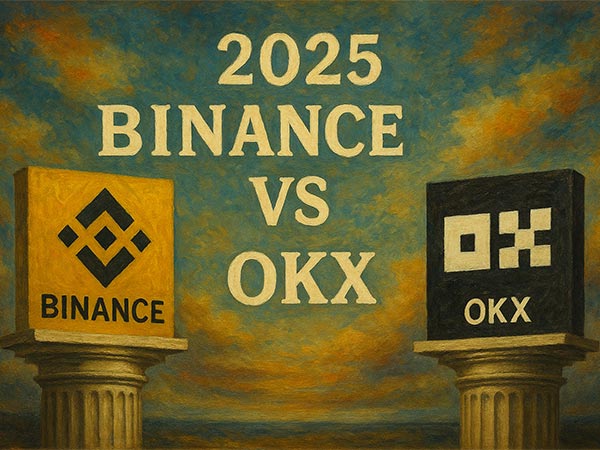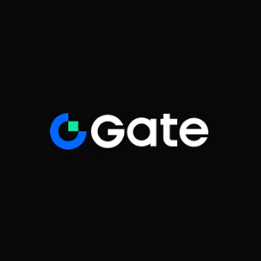Binance vs OKX: Which Exchange Is Better for You in 2025?

In the fiercely competitive crypto exchange landscape, a platform’s history and strategic positioning often determine its long-term potential.
Join Binance: https://accounts.binance.com/
The world's largest exchange—start your crypto investment journey today.
Join OKX: https://www.okx.com/
Company Overview: Binance vs OKX
Binance, founded in 2017, is the world’s largest cryptocurrency exchange by trading volume. It offers a comprehensive suite of services including spot, futures, margin trading, staking, lending, and more. Its key strengths lie in high liquidity, an extensive range of trading pairs, and a global user base.
OKX (formerly OKEx), also founded in 2017, is one of the leading global crypto exchanges, known for its derivatives trading offerings and innovative features like DeFi integrations and Web3 wallets. It is especially popular in the Asian market and continues to improve its trading engine and user experience.
Both are industry giants—while Binance focuses on global expansion, OKX stands out in derivatives and institutional services.
Binance vs OKX Fee Comparison
According to the Efficient Market Hypothesis, even slight differences in trading fees can significantly affect long-term investment returns due to compounding effects.
Fees are a crucial factor in selecting an exchange. Here's how Binance and OKX compare:
| Fee Type | Binance | OKX |
|---|---|---|
| Spot Trading (Maker) | 0.10% | 0.08% |
| Spot Trading (Taker) | 0.10% | 0.10% |
| Futures (Maker) | 0.02% | 0.02% |
| Futures (Taker) | 0.04% | 0.05% |
| BTC Withdrawal | Dynamic (~0.0002 BTC) | 0.00015 BTC |
| Fiat Deposit (Card) | 1.8%–3% | 1.5%–2.5% |
Conclusion: OKX offers slightly lower Maker fees for spot trading and lower BTC withdrawal fees. Binance, however, has an edge in Taker fees for futures. Both platforms offer VIP tier discounts for high-volume traders.
Available Cryptocurrencies
According to modern portfolio theory, asset diversity directly impacts risk mitigation. Both exchanges support hundreds of cryptocurrencies, but their exact listings vary:
Binance top supported assets:
BTC, ETH, BNB, SOL, XRP, ADA, DOGE, DOT, MATIC, AVAX
OKX top supported assets:
BTC, ETH, OKB, SOL, XRP, ADA, DOGE, DOT, MATIC, APT
Unique strengths:
-
Binance frequently lists new tokens and IEO (Initial Exchange Offering) projects.
-
OKX supports niche blockchain ecosystems (like Aptos and Sui) and specialized DeFi tokens.
User Interface and Experience
According to Norman’s principles of design, good UX balances functionality with simplicity. A seamless interface can greatly enhance trading efficiency.
-
Binance: Feature-rich but slightly complex interface—ideal for intermediate and advanced users. The mobile app delivers a robust experience.
-
OKX: Offers a cleaner UI, beginner-friendly layout with “Basic” and “Pro” modes, and powerful charting tools.
Conclusion: Beginners may prefer OKX’s simpler layout, while seasoned traders might lean toward Binance’s in-depth features.
Security and Asset Protection
Based on the NIST Cybersecurity Framework, a robust security system should encompass prevention, detection, response, and recovery.
-
Binance: Utilizes the SAFU Fund (10% of trading fees reserved for emergencies), two-factor authentication (2FA), anti-phishing codes, and withdrawal whitelisting.
-
OKX: Implements cold storage with multi-signature tech and a "risk reserve fund" to handle extreme market conditions.
Security incidents:
-
Binance suffered a hack in 2019 ($40M loss), but fully reimbursed users.
-
OKX has maintained a clean security record with a stable risk control system.
Conclusion: Both offer industry-leading protection, but OKX slightly edges ahead in proactive risk management.
Regulatory Compliance and Legal Standing
Different regulatory jurisdictions can affect an exchange’s service continuity and legal stability.
-
Binance: Faces regulatory scrutiny in several countries (e.g., U.S., U.K.) and operates through localized entities like Binance US.
-
OKX: Proactively pursues regulatory licensing (e.g., Dubai, Bahamas), and has exited high-risk jurisdictions like Canada.
Conclusion: In strict regulatory environments (like North America or Europe), OKX offers more stability. Binance’s flexibility benefits users in Asia and emerging markets.
Trading Features and Ecosystem
Order book depth and liquidity impact execution quality and trading costs. Here's how the platforms compare:
Binance:
-
Offers a full suite of trading products: spot, futures, options, margin, ETFs.
-
Unique copy trading system and advanced quant trading APIs.
-
Integrated DeFi ecosystem with BNB Chain and Trust Wallet.
OKX:
-
Ranked among the top 3 for derivatives trading volume.
-
Innovative tools like grid bots and strategy automation.
-
Full-stack Web3 ecosystem including OKX Wallet and DEX aggregator.
| Feature | Binance | OKX |
|---|---|---|
| Copy Trading | Yes (Advanced) | Yes |
| Quant API | Robust but complex | Easier-to-use templates |
| Web3 Access | Via Trust Wallet | Built-in full suite |
Conclusion: High-frequency traders may prefer Binance, while strategy traders and Web3 users may gravitate toward OKX.
Customer Support and Feedback
-
Binance:
-
24/7 multilingual live chat
-
Average response time: 3–6 hours
-
Active community, but some backlog in support tickets
-
-
OKX:
-
Introduced VIP account manager service
-
Faster response time: 1–3 hours (priority for Chinese users)
-
Regular AMAs for user engagement
-
Third-party reviews:
-
Trustpilot: Binance 3.8★ vs OKX 4.1★
-
Reddit negative feedback rate: Binance 23% vs OKX 17%
Conclusion: OKX leads slightly in responsiveness and service quality, while Binance has broader language support.
Payment Methods and Accessibility
Payment diversity affects onboarding speed across regions.
| Payment Option | Binance | OKX |
|---|---|---|
| Bank Transfers | 180+ countries | 150+ countries |
| Credit Cards | Visa/MC/Apple Pay | Visa/MC only |
| Third-Party Gateways | Supports Advcash | Supports Mercado Pago |
| P2P Trading | 500+ payment methods | 300+ payment methods |
Geographic restrictions:
-
Binance is restricted in 13 countries (including the U.S.).
-
OKX is unavailable in 8 countries (e.g., Canada).
Conclusion: Binance suits global users; OKX is ideal for Latin America and Southeast Asia with local payment support.
Staking and Passive Income
Diversified yield strategies help reduce portfolio volatility.
| Product | Binance APY | OKX APY |
|---|---|---|
| BTC Staking | 1.2%–3.5% | 1.8%–4.2% |
| ETH Staking | 3%–5% | 3.2%–5.5% |
| Flexible Savings | Up to 8% | Up to 10% |
| New Coin Mining | 10+ ongoing | 5–8 curated |
Features:
-
Binance: Auto-compounding
-
OKX: Dual Investment (capital-protected structured products)
Conclusion: Choose OKX for higher yields, Binance for automation.
Tax Reporting Tools
PwC research shows that 38% of crypto investors suffer losses due to poor tax filing.
-
Binance:
-
CSV export of trade history
-
TaxBit integration for calculations
-
Lacks localized tax guidance
-
-
OKX:
-
Built-in tax calculator (20+ countries)
-
Generates downloadable PDF reports
-
Country-specific tax guidelines
-
Tax scope:
-
Binance: Capital gains only
-
OKX: Covers capital gains, VAT, GST
Conclusion: Users with complex tax needs should choose OKX; both platforms suffice for basic tax filing.
Should You Use Binance or OKX?
The best exchange depends on your trading style, risk tolerance, and location.
-
Choose Binance if you are a high-frequency or quantitative trader, want access to the broadest coin selection, and reside in less regulated regions.
-
Choose OKX if you prefer derivatives, value Web3 integration, or require strong regulatory compliance—especially for institutional use.
Conclusion
In 2025, Binance and OKX continue to shape the competitive crypto exchange landscape with distinct strategic advantages.
-
Binance excels in global liquidity and diverse trading options, making it the go-to for active traders and diversified investors.
-
OKX leads in derivatives, automation tools, and Web3 development, catering to strategy-based and decentralized application users.
From a compliance standpoint, OKX takes a more conservative regulatory route, while Binance remains aggressive in market expansion.
Looking ahead, both platforms may converge in core offerings, yet their strategic positioning is likely to remain distinct.
Final Recommendation:
The ideal approach may be to use both—deploy core trading strategies on Binance, and utilize OKX for structured products and Web3 access. Your final decision should reflect your trading needs, risk profile, and jurisdictional considerations.
-
Sign Up

OKX
OKX is a leading global digital asset trading platform offering spot and derivatives services for cryptocurrencies.
-
Sign Up

Binance
Binance is one of the world's largest cryptocurrency exchanges, offering spot, futures, staking, and a wide range of digital asset services.
-
Sign Up

Bybit
Bybit is a global cryptocurrency exchange specializing in derivatives, spot trading, and crypto-financial products.
-
Sign Up

Gate.io
Gate.io is a leading crypto exchange offering diverse trading options, low fees, and strong security since 2013.
